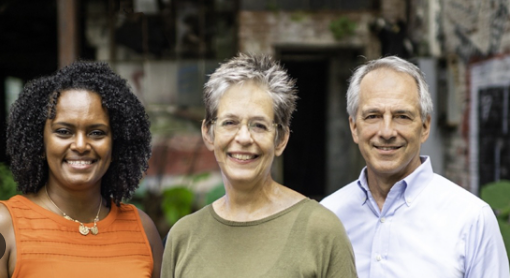Maleda Berhane understood at a young age how some of the transformations resulting from real estate and infrastructure development projects could be far less tangible than the concrete and rebar used to build them. As a child in Ethiopia, she came to this understanding watching her successful civil engineer father on job sites as he oversaw the construction of roadways and bridges that would provide access to healthcare facilities, food and water to some of the most remote parts of the county.
“Roadways would open and allow for transportation to connect remote areas to life-changing resources,” Berhane says. “At a very young age, I had the privilege of witnessing the impact of what might just seem like moving dirt or putting down paving, and how it could transform not only individual lives, but also communities and villages and entire generations of people.”
Now, as CEO and co-founder of Philadelphia real estate development company AR Spruce, Berhane is still driven by the early-forged realization that decisions made in development, as arcane as they sometimes seem, have direct and tremendous impacts. This realization has yielded a set of questions about real estate development in Philly that Berhane has been asking herself — and, increasingly, others — for over two decades now: Who actually gets to make those decisions, and how can a greater number of traditionally excluded voices participate in doing so?
The real estate and construction industries have long been dominated by White male workers and decision-makers. Though the spaces are starting to inch closer to parity, wide chasms remain: According to a 2023 report from the U.S. Equal Employment Opportunity Commission, women represent just 11 percent of all workers in construction (and this figure includes office and clerical positions), and Black workers make up just 7 percent of the industry (though they comprise 13 percent of the U.S. labor force).



No Comment Found.